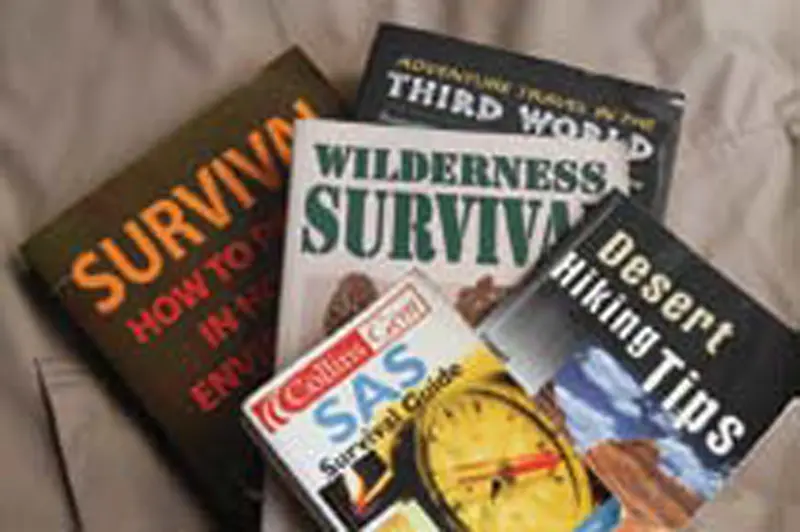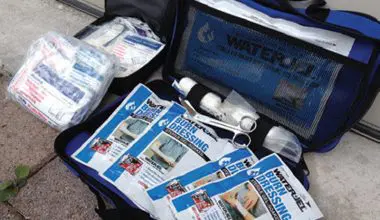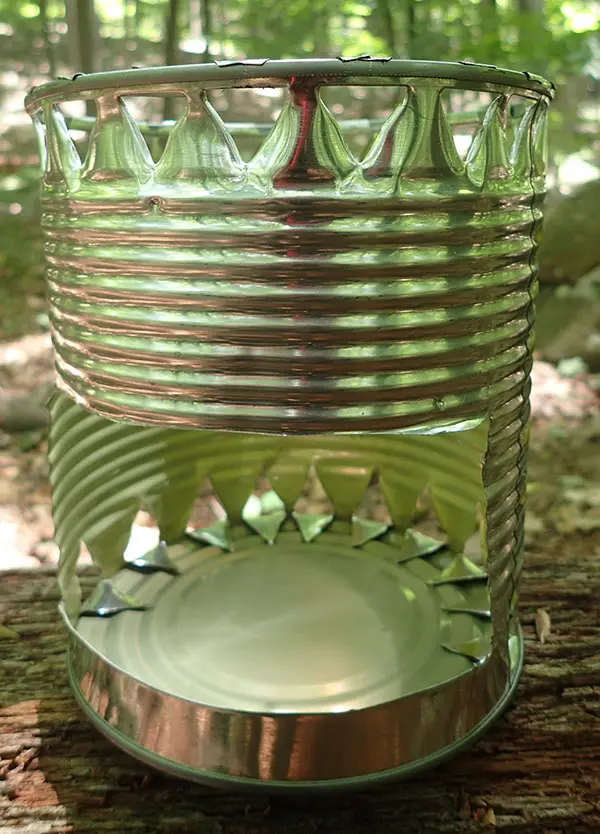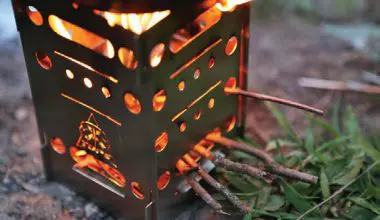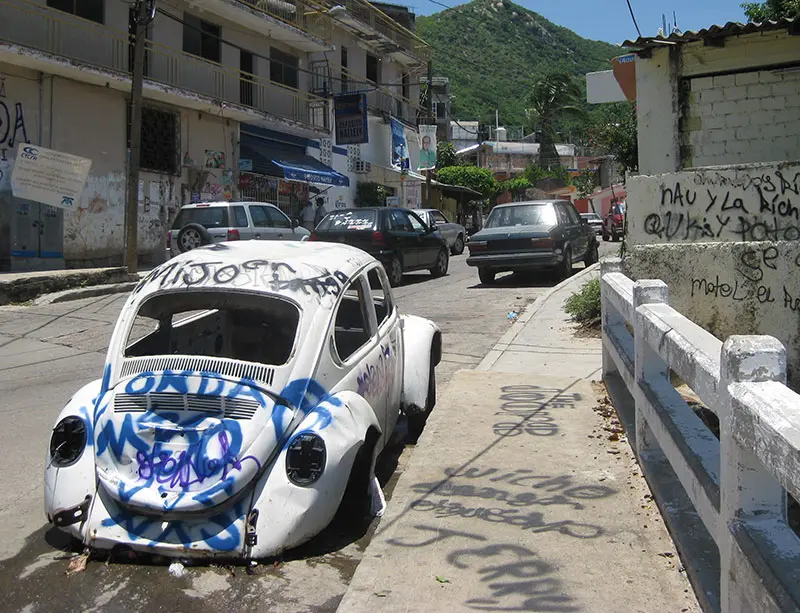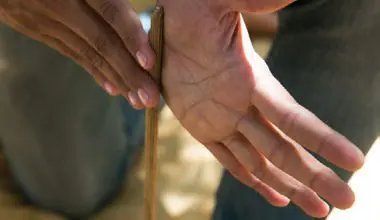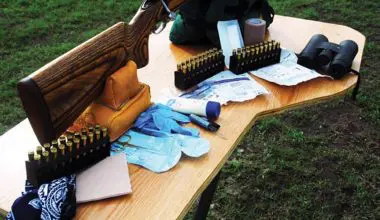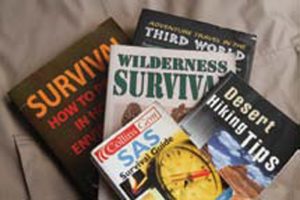
When I was training fighters in the art of Muay Thai some years ago, it became obvious that a fighter’s mindset has as much to do with the outcome of a fight as the time spent training the actual techniques. The same thing applies to emergency survival situations.
I have spoken at length to outdoors enthusiasts, knifemakers, and survival instructors about this very thing: mindset. The human brain is the most useful tool any of us possess, yet it is often overlooked.
Table of Contents
FULL-TIME SURVIVAL PREPARATION
From the time we wake up in the morning until the time we go to bed at night, we are surviving. It’s not usually a Rambo-like survival situation, but regular day-to-day survival. Some people feel out of their comfort zone when in a bad part of town, while others feel uneasy in the woods. Survival stories have become a big part of the learning process and remind people about the need to be educated and prepared.
History shows that the world has been shaped by natural disasters. Earthquakes, volcanoes, tornados and tsunamis are all too common these days. After experiencing a few earthquakes in my native California, I began to look at preparedness in a whole different light.
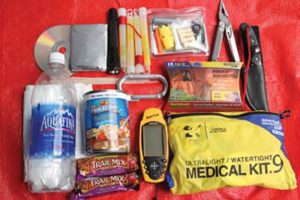
If you live in a tornado-prone area, look into stocking up your basement or emergency shelter.
If you have to drive through a wooded or desert area, think ahead about what could happen if your car had a problem such as a flat tire or even just overheating. What if you had to spend an entire night in the wilderness? Would you be ready?
Most people have a false sense of security that if they are in a vehicle wearing their seat belt, they are immune to any other dangers. In fact, this complacency often results in lost motorists and can lead to tragedy, mainly due to panic.
Panic is a sudden sensation of fear that is so strong it overrides reason and logical thinking and replaces them with overwhelming feelings of anxiety and frantic agitation consistent with an animalistic fight-or-flight reaction. Panic occurs to individuals but can also manifest in large groups as mass panic. If you are prepared, there is no such thing as panic.
Camping and hiking not only offer us relaxation, exercise and a way to spend time with friends and family. They also give us a chance to do a little mental training. Being cold or exhausted from a long hike strengthens us mentally for the next time we experience these feelings. In our heads, we can always compare it to our last experience.
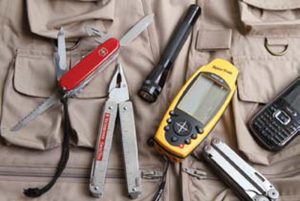
This process, over time, builds us up mentally for handling emergencies and survival situations. It is hard to tell someone “don’t panic” or “calm down.” If they have never been in an emergency situation, they most likely will panic or freeze up in an emergency.
SKILLS/TOOLS
When it comes to skills development, there is no end. I have never heard an expert say, “I have perfected it.” Skills are like a language: unless they are properly used and used often, they will diminish over time. Like martial arts and firearms training, we train like we fight and fight like we train.
The same idea applies to outdoor skills. Your proficiency will only be limited by the amount of time you put into it.
In addition to Internet information, there are many books and videos available to the public on outdoor skills and survival. For instructional videos, I recommend the Woodsmaster Video Series. It is the brainchild of Ron Hood, who pioneered mainstream survival before all the reality shows on the Discovery Channel.
Ron and his wife Karen have made a business out of their knowledge and experiences teaching wilderness and urban survival skills. Their instructional DVDs cover all aspects of survival, including fire, shelter, survival kits, navigation, traps, primitive weapon-making, and different crafts for the field.
Tools are used to help us accomplish tasks and provide us with a certain mental security blanket. Seen all too often during survival courses are people who have the latest and greatest gear such as water filters, knives and tents, but don’t have a clue how to use them. Their false sense of security keeps them carrying these items.
I think survival experts would agree there are a few tools that are necessities to have on your person or in your vehicle while traveling through wilderness areas. Think about stocking your glove compartment and trunk with extra supplies and compact tools that may not only help you, but also possibly save your life.
For example, if you’re on a road trip and know you might be entering desolate areas of desert or forests, then add a gallon or two of water plus some simple snack bars.
As for tools, you should consider packing flashlights, multi-tools, mirrors, a personal locator beacon, and signaling devices like whistles. A small folding shovel can be especially useful for traveling in known muddy or snowy terrain.
Household items that can be helpful may also be taken along on a trip. Examples of this are small tool bags, gardening gloves, rope, duct tape, zip ties, and trash bags. Just like people carry a spare tire, think about carrying spare clothes for an unexpected night in your vehicle should you lose your way, fall victim to a flat tire, or run out of gas.
As stated above, we can all learn from the survival stories of others, both the stories with happy endings and those with more somber ends. The reality is that, if we don’t prepare and educate ourselves, even the best cars and sharpest technologies may not save us.
The tragedy of James Kim and his family made them the subject of headlines in December 2006. While driving, the Kims missed a turnoff and picked a secondary route that traversed a remote wilderness area of southwestern Oregon. Lost and eventually immobilized by heavy snowfall, James Kim was found dead days after he left his vehicle and attempted to walk to the nearest town. And it had all started with a simple mistake.
More recently, a survival story with a positive outcome has been in the news. A 56-year-old Canadian woman, Rita Chretien, survived seven weeks in the remote high desert of northeast Nevada by drinking melted snow, rationing the small amount of food she had and staying with her vehicle. And one other important factor, to quote attending physician Dr. James Westberry: “She obviously had the mindset of survival.” Mindset–don’t underestimate it. Cultivate it.
CLOSING THOUGHTS
Get out there in the dirt. Hike with friends, read, prepare and practice your skills. Do everything you can so that if an event unfolds that is out of your control, you will be better prepared and have additional knowledge of what to do next.
Remember the Boy Scout motto: “Be Prepared!” Don’t be a victim.
